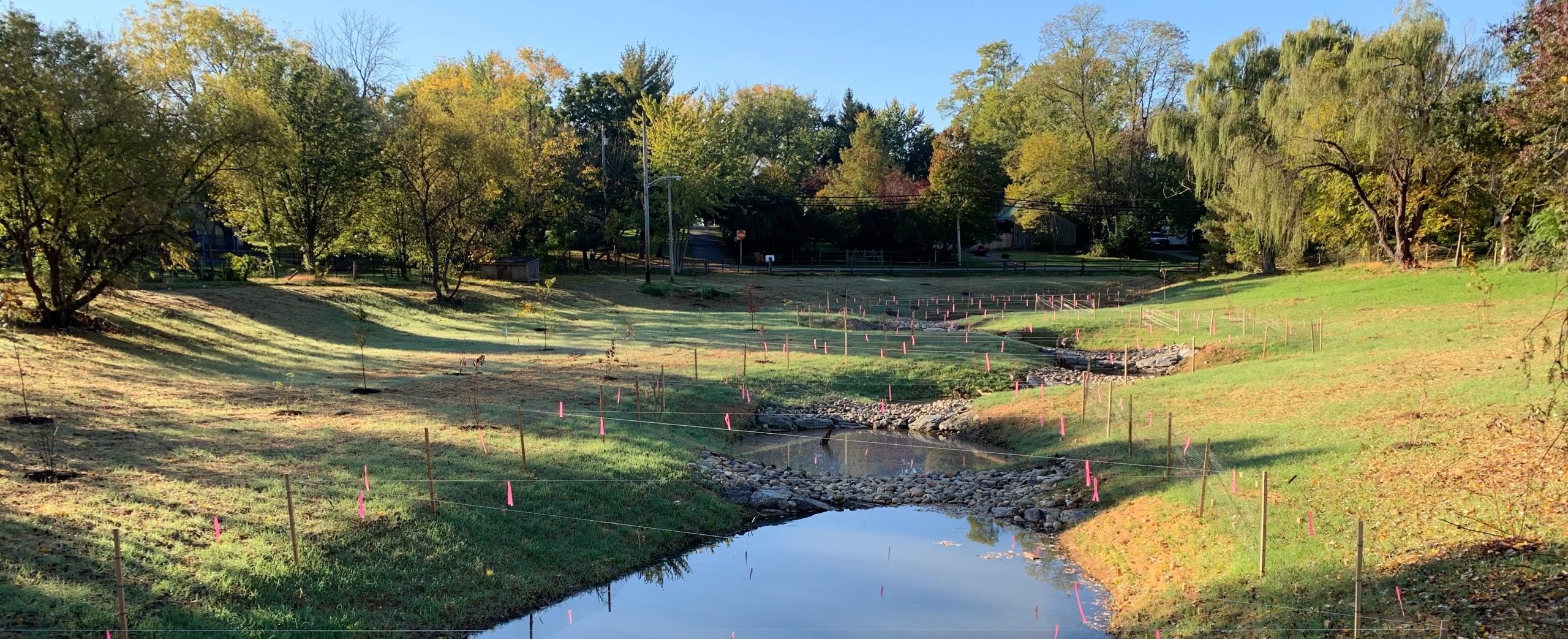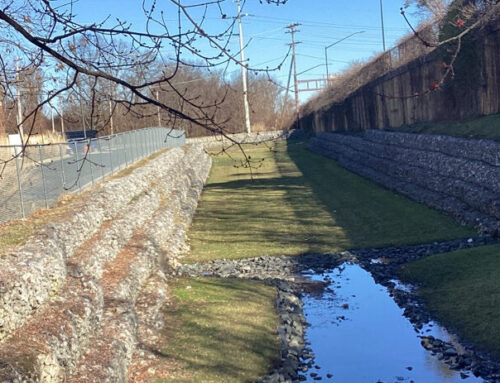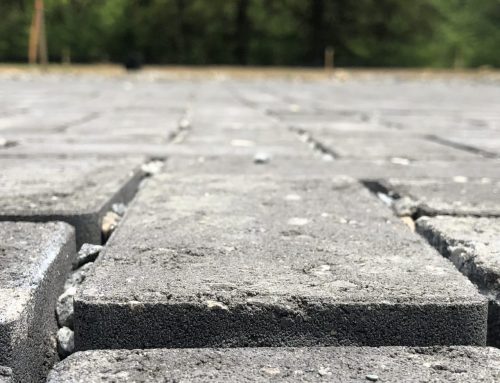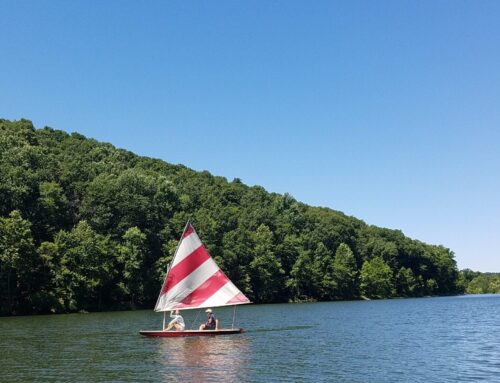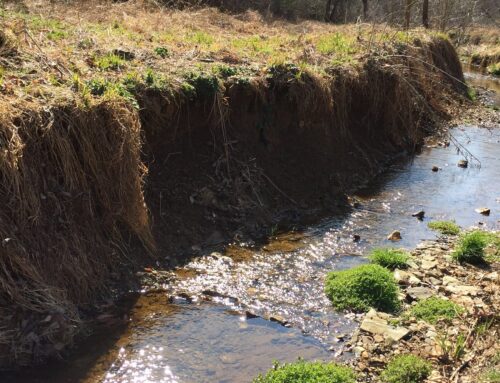A stormwater retrofit designed by the Center for Watershed Protection (CWP) and constructed by Resource Restoration Group (RRG) in the Town of New Market, Maryland is now complete. This project transformed an historic fire pond into a step pool storm conveyance system that reduces stormwater pollution in the Linganore Creek watershed, a drinking water supply that is part of the larger Potomac River Basin. The project was initially identified as a top priority in the Town’s Stormwater Retrofit Plan developed by CWP in 2019.
The New Market fire pond was constructed more than 68 years ago as a water source for fire protection but is no longer needed for this purpose. Approximately 26 acres of the Town’s historic district and adjacent neighborhoods drained to an outfall at the upstream end of this pond, whose embankment was eroding and threatening failure. The process involved dewatering the pond, removing the embankment, grading a step pool channel to connect the stormwater outfall and the downstream culvert under William Plummer St., and planting the adjacent site area with appropriate riparian buffer seed, shrubs, and trees. CWP handled the project design, permitting and construction oversight while RRG led all aspects of project construction.

Algae-covered fire pond prior to de-watering

De-watering phase

Completed project just after planting
The pond dewatering was a bit slow due to the rainy summer, but the construction was a success, and is now complete per the design plans. Some goose predation prevention fencing was included around the step pools to prevent the herbaceous plant plugs from being eaten, and fencing was included around the trees and shrubs to prevent damage from deer browsing. A time lapse series of the construction and an aerial photo of the completed project can be viewed below.

The open space adjacent to the channel will now be usable by the Town residents as park space. This project will help to improve the health of Walnut Run, a designated trout stream into which the project drains. These benefits will trickle down to Lake Linganore the Monocacy River, and ultimately the Chesapeake Bay.
This project was funded by the National Fish and Wildlife Foundation and the Maryland Department of Natural Resources. To learn more about this project, contact Ari Daniels at add@cwp.org.

